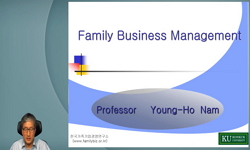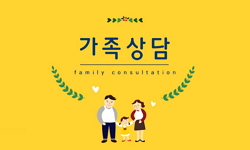The purpose of this study is to newly interpret the meaning of family by focusing on domestic animals appeared in Korean oral folktales. Family is a human group. Family can be regarded as the very basic unit of human community. However, defining famil...
http://chineseinput.net/에서 pinyin(병음)방식으로 중국어를 변환할 수 있습니다.
변환된 중국어를 복사하여 사용하시면 됩니다.
- 中文 을 입력하시려면 zhongwen을 입력하시고 space를누르시면됩니다.
- 北京 을 입력하시려면 beijing을 입력하시고 space를 누르시면 됩니다.

구비설화에 형상화된 가축의 가족 공동체적 성격과 국어교육적 활용 = Korean educational application and Familial character of Domestic Animals suggested in Oral Folktales
한글로보기https://www.riss.kr/link?id=A99619078
- 저자
- 발행기관
- 학술지명
- 권호사항
-
발행연도
2010
-
작성언어
-
-
주제어
구비설화 ; 가족 ; 가축 ; 생산 공동체 ; 영역 공동체 ; 욕망 공동체 ; 국어교육적 활용 ; oral folktales ; family ; domestic animals ; productive community ; space community ; desire community ; Korean educational application
-
KDC
810
-
등재정보
KCI등재
-
자료형태
학술저널
-
수록면
195-221(27쪽)
- 제공처
-
0
상세조회 -
0
다운로드
부가정보
다국어 초록 (Multilingual Abstract)
The purpose of this study is to newly interpret the meaning of family by focusing on domestic animals appeared in Korean oral folktales. Family is a human group. Family can be regarded as the very basic unit of human community. However, defining family just as a particular group community is like limiting the meaning of family. In Korea's traditional society, domestic animals were treated like a family, even though they are not same in species as human. In the traditional society, farming was the main business of people. In this sense, cows were perceived as something more than just an animal Also, dogs were not perceived just as an animal. Therefore, it's not sensible to exclude such domestic animals from discussing the meanings, categories and attributes of family and family relations. In this study, this researcher reviewed Korean oral folktales in which domestic animals appear as characters in order to determine the boundariesthat exist between domestic animals and family. As a result, the researcher found that in the oral folktales, domestic animals have certain relationships with people and are treated like a family. Cows are absolutely essentials in a number of places where people labor to get products necessary for their survival and life maintenance. People and dogs share a same house as the space of living. In this sense, it can be said that people and dogs form a family that work together to protect the shared space, or a space community. In some oral folk tales, it's described that people solve their sexual desire by means of domestic animals. This suggests that people and domestic animals may form a desire community. Thus, domestic animals appeared in oral folk tales are something more than just animals. They have the position of a family who form various types of communities together with people. Also, this writing attached importance reveals the educational value which applies oral folktales. The anthropocentrism which leads the pursuit of variety exuviated and the fact that converts a new recognition with Korean educational application about the animal.(Dong-A University)
목차 (Table of Contents)
- 1. 서론
- 2. 다양한 공동체를 형성하는 가축
- 3. 인간의 이해와 동물의 의미
- 4. 동물설화의 국어교육적 활용
- 5. 결론
- 1. 서론
- 2. 다양한 공동체를 형성하는 가축
- 3. 인간의 이해와 동물의 의미
- 4. 동물설화의 국어교육적 활용
- 5. 결론
동일학술지(권/호) 다른 논문
-
- 동남어문학회
- 김영선(Kim, Young-Seon)
- 2010
- KCI등재
-
- 동남어문학회
- 권오경(Kwon, Oh-Kyung)
- 2010
- KCI등재
-
- 동남어문학회
- 이국환(Lee, Kook-Hwan)
- 2010
- KCI등재
-
- 동남어문학회
- 이상재(Lee, Sang-Jae)
- 2010
- KCI등재




 스콜라
스콜라






